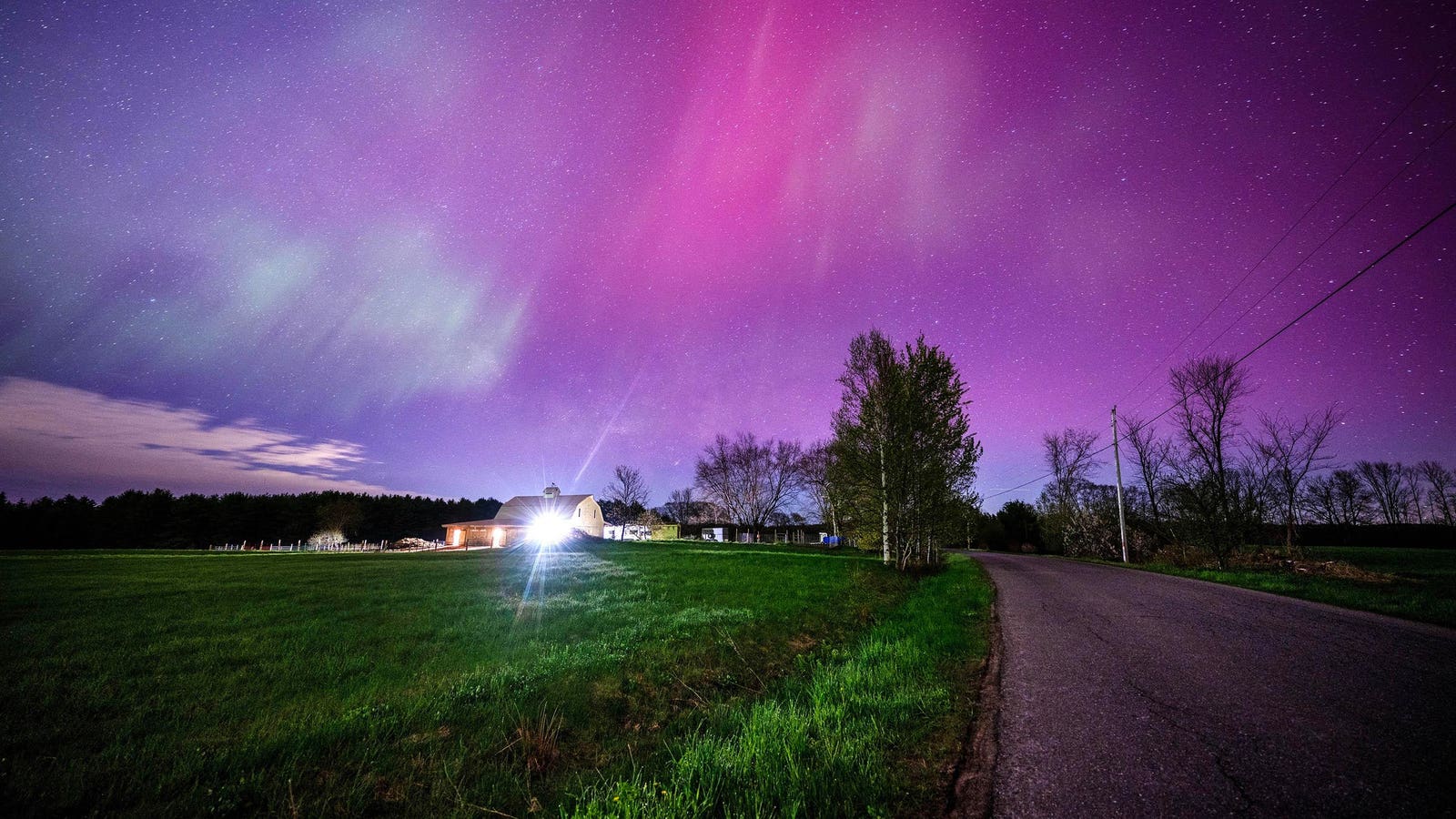Topline
The northern lights could be visible from northern states along the U.S.-Canadian border, according to the National Oceanic and Atmospheric Administration, as the Earth could see the effects of minor geomagnetic storms caused by a coronal hole observed on the Sun.
A coronal hole could cause minor geomagnetic storms starting early Tuesday morning, according to NOAA.
Getty ImagesKey Facts
Forecasters at NOAA predict a Kp index of four out of nine on Monday night and early Tuesday morning, indicating the aurora could appear “brighter” with more “motions and formations.”
The higher Kp index coincides with an increased risk of minor geomagnetic storms starting early Tuesday morning caused by a “positive polarity coronal hole,” forecasters said.
What Are Coronal Holes?
Coronal holes are regions of the Sun’s corona, or its outer layer of atmosphere, that appear darker in photographs. They contain relatively cooler, less dense and have unipolar magnetic fields that allow solar winds to escape. When these solar winds interact with the Earth’s magnetic field, they can cause geomagnetic storms. The storms predicted for early Tuesday morning are expected to be relatively mild, scoring a G1 out of five on NOAA’s scale. These mild storms can still cause the northern lights to appear brighter and visible further south.
Where Will The Northern Lights Be Visible?
The aurora could be visible from several northern states, including parts of Washington, Idaho, Montana, North Dakota, and northern South Dakota. In the Midwest, the lights could be visible from northern Minnesota, Wisconsin, and Michigan. On the East Coast, they could also be viewable from the northern tip of Maine. Most of Alaska also falls within the view line for the lights on Monday.
What’s The Best Way To View The Northern Lights?
Prospective northern lights viewers should travel north towards the Earth’s magnetic north pole and away from other sources of light, experts at NOAA said. Viewers should find a vantage point with a clear view north, and time their trips to the hours when the aurora is most active—typically 10 p.m. through 2 a.m.
